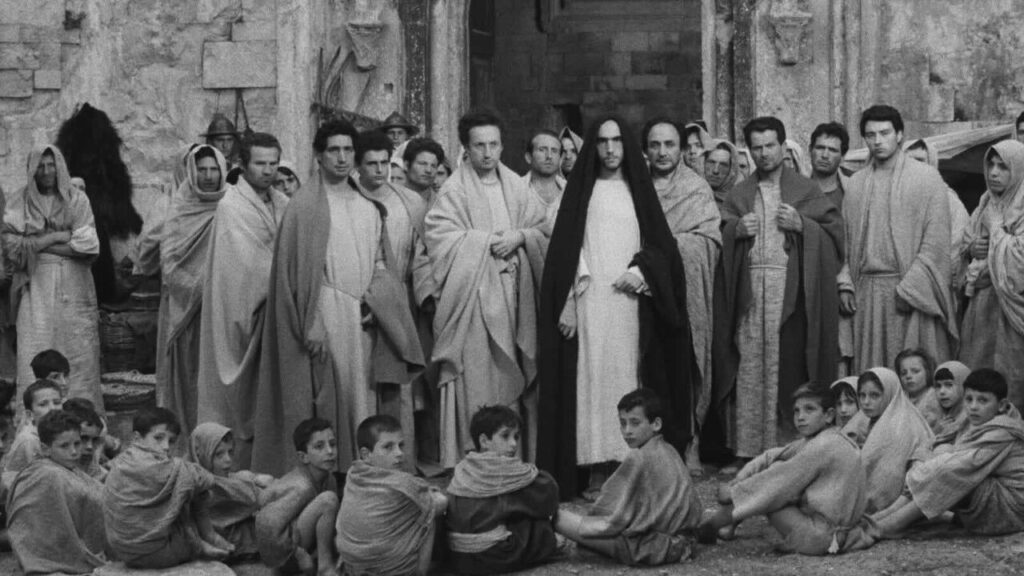TEHRAN – Cinematheque of the Iranian Artist Forum (IAF) screened a restored version of Italian film director Pier Pasolini’s 1964 film, The Gospel of St. Matthew, on Monday.
The screening was followed by a review session by Iranian critic Parviz Jahed.
The Gospel of St. Matthew (Italian: Il Vangelo Secondo Matteo) is a groundbreaking film that redefines Bible storytelling through a harsh, realistic lens. An epic biblical drama, the film chronicles the life of Jesus Christ from the birth to the resurrection and offers a meditative portrayal rooted in the Gospel of Matthew.
In line with Italian neo-realist tradition, Pasolini chose to cast unprofessional actors, highlighting credibility and raw emotion. Filmed entirely in southern Italy, the film captures the landscapes, villages and people of the region, immersing viewers in a concrete, everyday world that contrasts with traditional Hollywood biblical epics.
Pasolini’s decision to use the actual text of Matthew’s Gospel in dialogue emphasizes his belief that “images cannot reach the poetic heights of text,” and aims to maintain the holiness and poetic depth of the Bible.
Pasolini specifically chose Matthew’s Gospel over others, as he felt he was more suited to adapting the film. He considered John’s Gospels too mysterious, Mark was too vulgar, and Luke was overly sentimental. This choice reflects his desire to make a film that is mentally sincere and artistically restrained.
The film premiered at the 25th Venice International Film Festival in 1964, where it received critical acclaim and won the Great Jue Prize, the OCIC Prize and the Silver Lion. He was also nominated for three Oscars (Best Art Direction, Best Costume Design, Best Score) later recognized as the best film ever made about Christ by the Vatican L’Osservatore Romano. For many years it has been hailed as a classic of world cinema and is a definitive work within the neo-realist genre.
Critics praised the film’s artistic depth and spiritual authenticity. The film was reflected in a high rating (92%) of Rotten Tomatoes and was comprehensively praised by a number of top film lists, including the Vatican’s great film list and Roger Ebert’s great films. In particular, highly acclaimed Russian filmmaker Andrei Tarkovsky praised the film.
The influence of “The Gospel of St. Matthew” endures the life of Christ as a powerful, poetic and politically aware narrator, blending religious respect with neo-realist aesthetics to create a timeless cinema masterpiece.
Pier Paolo Pasolini (1922–1975) was an influential Italian poet, filmmaker, writer, actor and playwright, considered the leading intellectual of Italy in the 20th century. He was a controversial figure due to his direct style. His cruel and unsolved murder in 1975 shocked Italy, with recent investigations suggesting contract killings related to organized crime and far-right terrorism.
sab/

